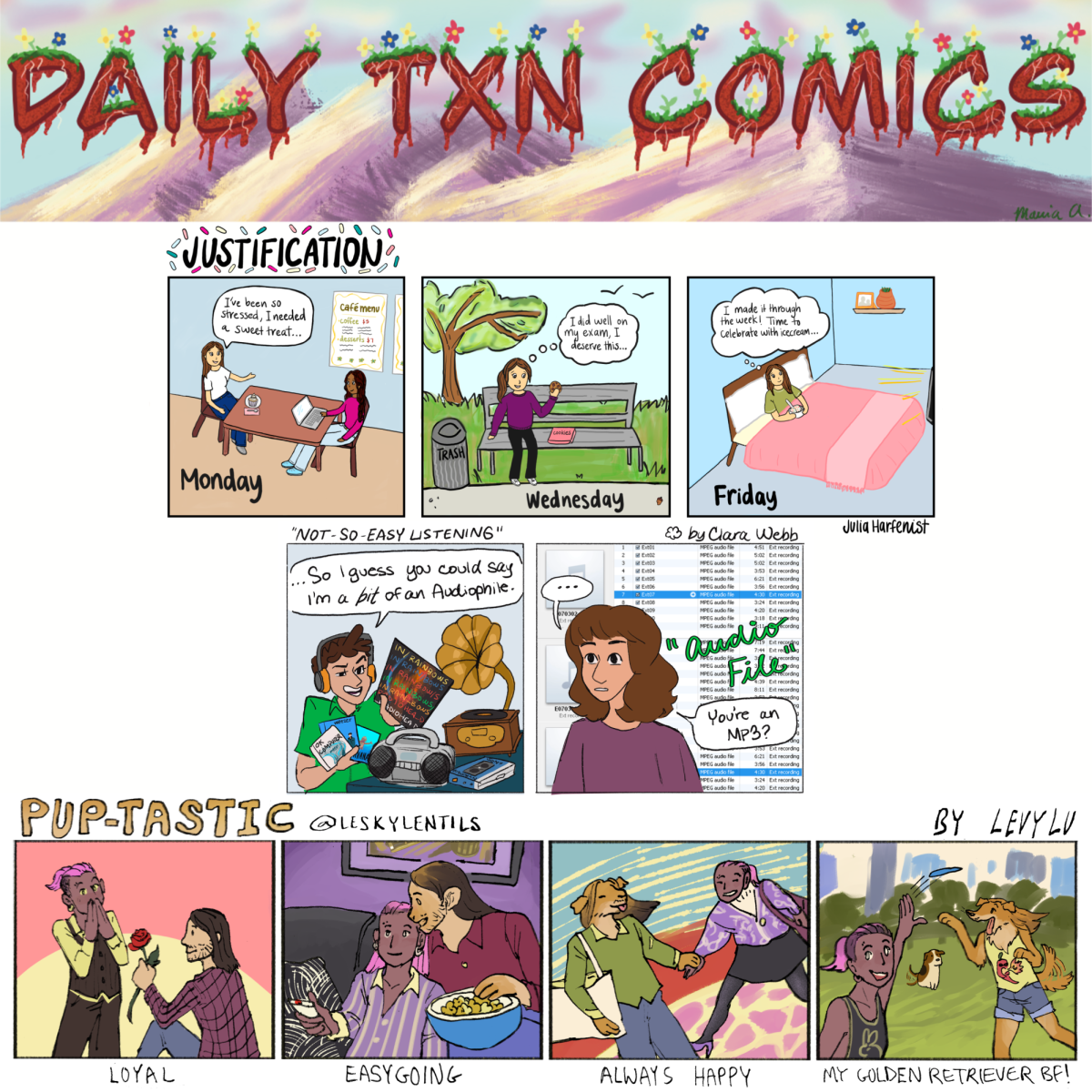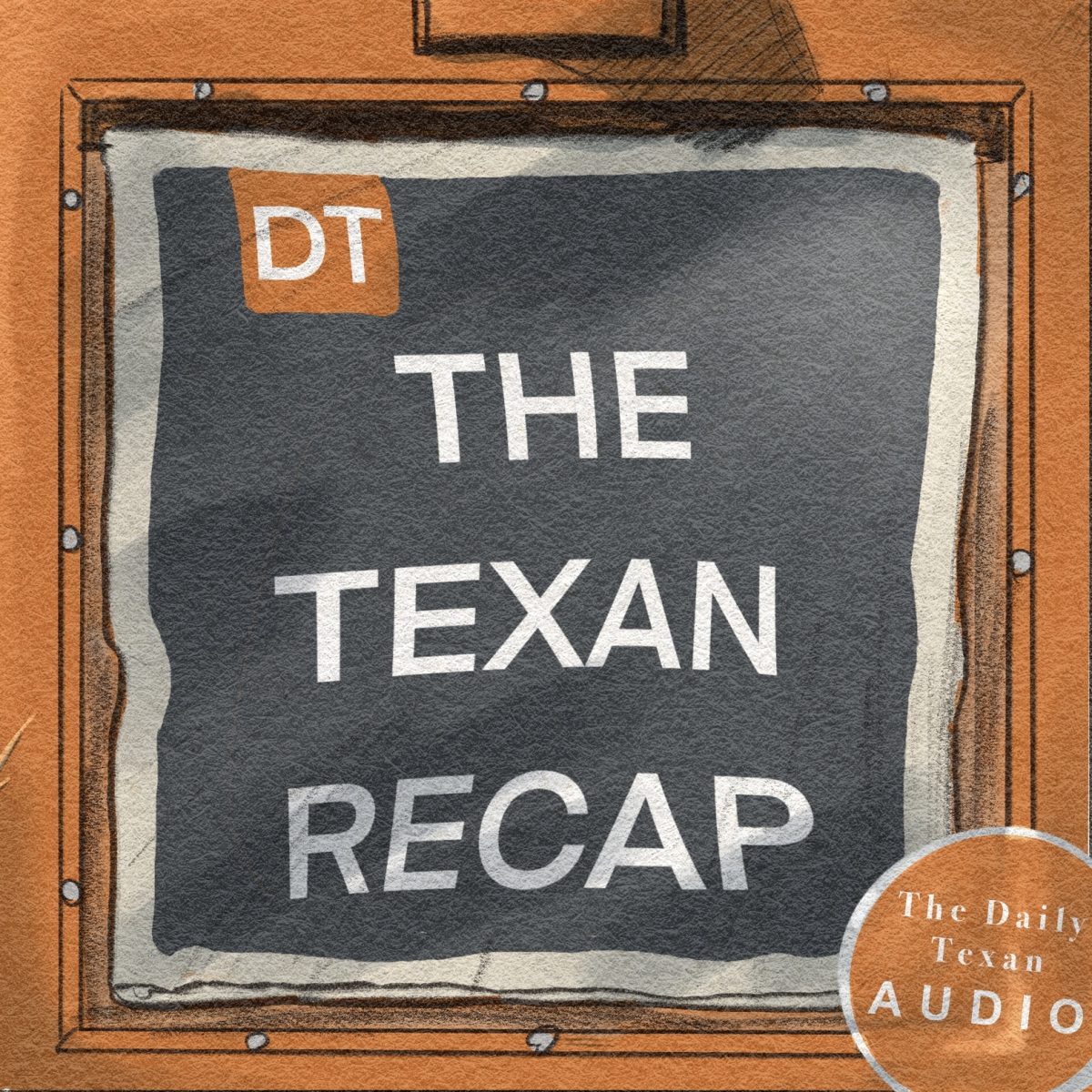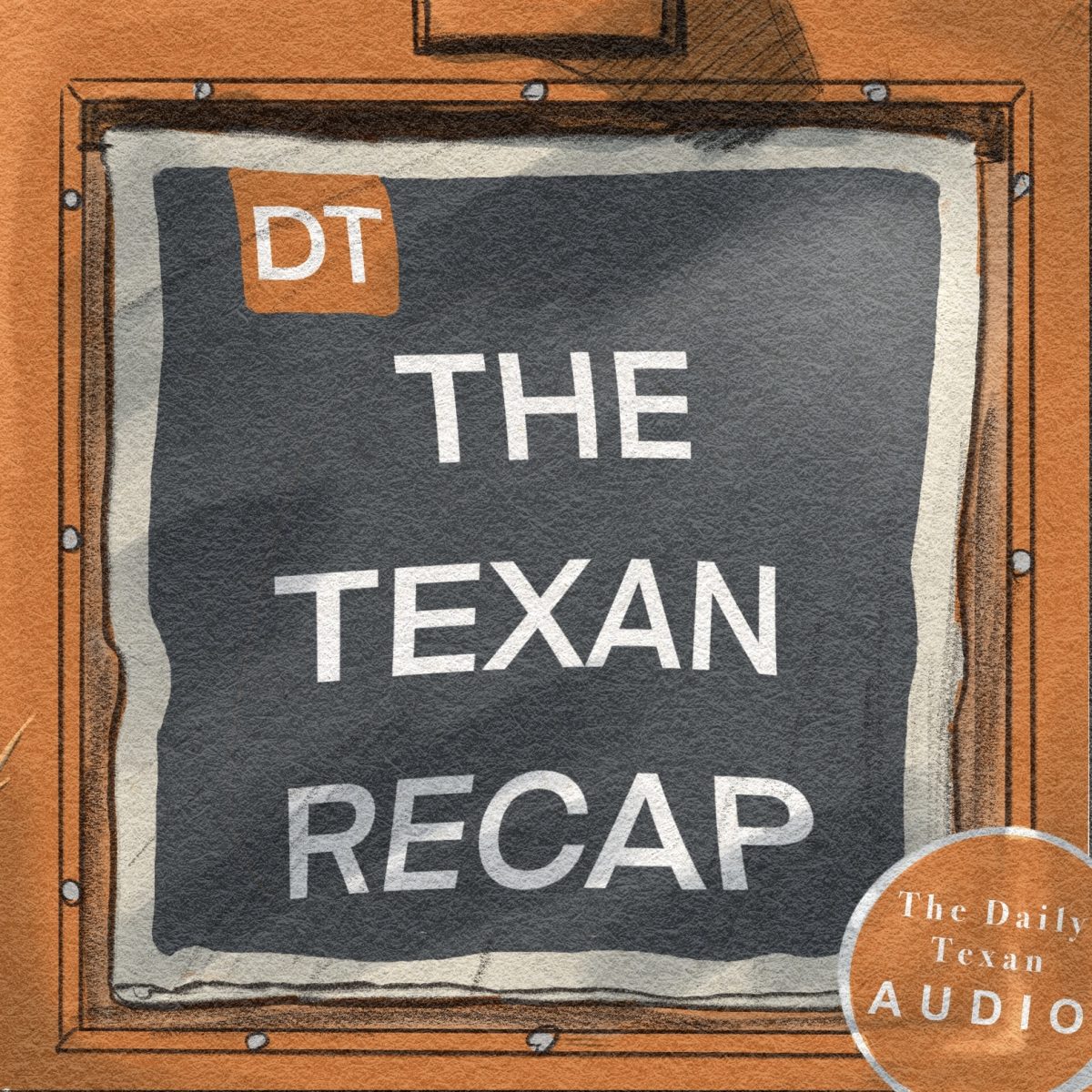Editor’s Note: This podcast was originally published on Spotify on September 10, 2023.
In this episode of the “Texan Recap,” Audio editor Aislyn Gaddis talks with Texan reporters about the state law banning gender-affirming care for transgender youth, which went into effect on September 1. Plus, UT announces the creation of the Women’s, Gender and Sexuality Studies Department.
Reported by Mason Rouser and Celeste Hoover. Hosted and produced by Aislyn Gaddis. Cover art by Emma Berke. Music by Top Flow Productions
*upbeat music*
Aislyn Gaddis: A Texas bill banning gender-affirming care for transgender youth goes into effect, and UT opens a new department for Women’s, Gender and Sexuality Studies
I’m your host this week, Aislyn Gaddis and this is The Texan Recap.
Here’s what you missed this week.
*upbeat music*
Aislyn: On September 1st, Texas Senate Bill 14 went into effect, banning gender-affirming care for transgender youth. Senior news reporter Mason Rouser covers city and politics and is here with the story. Thanks for joining me, Mason.
Mason Rouser: Thanks for having me.
Aislyn: So SB 14 went into effect on September 1, what exactly does this bill do?
Mason: Yeah, so SB 14 is a bill that was passed in this legislative session that occurred earlier this year. And basically, it prevents transgender minors for being able to receive any sort of gender-affirming health care. So that includes medications like puberty blockers, hormone therapy, and any kind of surgery. And it also allows the Texas Medical Board to revoke the medical license of any doctor or physician who administers this gender-affirming health care to minors.
Aislyn: People were trying to stop this bill from going into effect pretty much until the final hour. Could you tell me about that?
Mason: Yeah, so there was a lawsuit that was brought against this bill. And in this lawsuit, the district county judge in Travis County issued an injunction on August 25, basically, a week before this law was going to go into effect, saying that the law likely violated the Texas Constitution in multiple ways and that if the law were to go into effect, it would call cause irreparable injury.
And so, the injunction stated that the law violates parents’ rights to make decisions about health care for their children, that it violates physicians’ rights to occupational freedom, which is just the idea that they’re allowed to use their own expertise in their field to appropriately address medical needs. And that also they the judge found that the law would likely violate or discriminate against transgender youth in Texas.
Aislyn: One important thing I do want to point out is that the bill only bans medications like puberty blockers and hormone therapy for transgender youth. And these things are still available to cisgender youth. What did your sources tell you about this?
Mason: Yeah, so I think this really gets at the part of the injunction that talked about how this law would discriminate against transgender youth. In the law, it does not say that medications like puberty blockers, or hormone therapy are inherently unsafe for minors to use. It only prevents their use by minors if they are experiencing gender dysphoria, or if they are transgender.
So something that my sources talked to me about, I was able to talk to someone from Equality Texas, which is an organization that is working closely with the legal team and the lawsuit was that it really is inherently going to be discriminatory against transgender youth and those who are experiencing gender dysphoria, because the healthcare itself is still safe for other youth to use. It’s just the capacity in which they’re using it.
Aislyn: Finally, I want to highlight one of the sources you spoke to Lucian Juarez, who is a speech-language pathology and linguistics senior here at UT. And he’s a transgender man who takes testosterone. What did he tell you?
Mason: Yeah, talking to Lucian for the story was great. Like you said, we’ve seen as a transgender man here at UT, who began his transition when he was 18 years old. So although he began his transition when he was a legal adult, and this law would not necessarily affect him, per se, he was able to speak to how this will affect other transgender youth.
For example, he talked about how he realized that he was transgender when he was younger, that he would have wanted this access to gender-affirming care, he talked a little bit about the distress and depression and anxiety that trans people can have when they experience gender dysphoria, and how now those youth that are trans, they will not have access to that same to those same tools to be able to address that themselves.
And something that really stuck out to me and my conversation with Lucian was that I asked him if he could describe what it is like to live with gender dysphoria because as you know, I don’t understand what that is like and I just wanted to hear it from him. And the way that he described it was that it is like you’re wearing the wrong size shoes your whole life. So they’re usually too small, they’re painful, but you don’t really realize that that’s wrong, because no one’s ever told you that and everyone else just kind of lives their lives with their shoes, and it’s fine. And that when you realize that they’re Oh, there is something different here. And you realize that the gender identity that you feel is not the same as the one that you’re assigned at birth.
You feel this kind of weight that comes off of you when you take those shoes off. And I just found that to be it really aided in my perspective and understanding kind of what it is that transgender people go through. to read, I just found that to be very important, something that I wanted to highlight.
Aislyn: That was senior news reporter Mason Rouser. Thanks so much for being here.
Mason: Yeah, thank you so much for having me.
*upbeat music*
Aislyn: UT just approved the creation of a brand new Women’s, Gender and Sexuality Studies Department. General reporter for Life and Arts Celeste Hoover is here to tell us more. Hi, Celeste, thanks for joining me.
Celeste Hoover: Hi, thanks for inviting me.
Aislyn: So the new Women’s Gender and Sexuality Studies Department has been created. But what happens now?
Celeste: Sure. So there are some concrete plans in place. They’re working on developing a Ph.D. program for existing master’s students, which is very exciting. It should offer some new research opportunities that are unique kind of not just in the area. But according to Dr. Moore, one of the more unique opportunities in the South for students in this field.
They’re also working on hiring some full-time professors. So hopefully, we’ll see some more classes in the field. Beforehand, it was a matter of, you know, for the center, they would reach out to professors who are perhaps in the English Department, the History Department, the Anthropology Department, you name it, who would be willing and have the time to teach some of these more inclusive classes. But you know, that was always just if their department would loan them out.
So hopefully, with this more of a full-time department, we’ll be able to see some more expansion in that area as well. And I talked to Dr. Cuevas, who’s the interim director for the Center for Women and Gender Studies now, and she’s very excited about perhaps, you know, expanding majors. So, in a few semesters even we could see, not just majors in women and gender studies, but perhaps, you know, some leaning towards sexuality studies as well.
Aislyn: What are the goals for the new department?
Celeste: Sure. So I think especially in the current political climate, especially within Texas, and recent rulings passed by the legislature, I think a lot of goals for the department are not just structural, you know, these improvements, and the field which can hopefully support more students and more faculty. But I think there’s also a sense of community that’s looking to be built. I talked with a few students who are involved with the center and the field in general. And now these professors and all these classes, and they told me that well, the additional resources will help them mentally. It’s really about community building. And that community has always been present at UT, it’s just a matter of getting it institutionally recognized and giving it the support it needs.
Aislyn: That was General Reporter for Life and Arts Celeste Hoover. Thanks so much for being here.
Celeste: Thank you.
Aislyn: And that’s The Texan Recap for the week of September 4…I’m Aislyn Gaddis
*upbeat music*
Aislyn: The Texan Recap is a production of The Daily Texan Audio Department. If you liked this episode, make sure you subscribe to The Daily Texan on your streaming platform of choice and follow us on Twitter @texanaudio. This episode was hosted and produced by me, Aislyn Gaddis. Special thanks to Mason Rouser and Celeste Hoover for their reporting, and to Katy Nelson, Mimi Calzada, and Chloe Moore for working with me on this project. Cover art is by Emma Berke and music is by Top Flow Productions. To read the news stories in this episode or see more from the Texan, head on over to www.thedailytexan.com. Thanks for listening, and I’ll see you next week.
*upbeat music*












